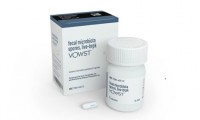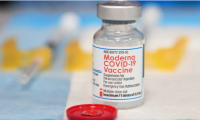-
Protalix, Chiesi challenge Sanofi with EU approval for Fabry disease med as FDA decision looms
- Source: drugdu
- 179
- May 8, 2023
-
WHO declares end to Covid-19 global public health emergency
- Source: drugdu
- 97
- May 7, 2023
-
Acelyrin follows Kenvue with largest IPO for a biotech startup since 2021
- Source: drugdu
- 113
- May 6, 2023
-
FDA issues new draft guidance on decentralised clinical trials
- Source: drugdu
- 120
- May 6, 2023
-
A high proportion of adults in Europe do not have protective antibody concentrations against diphtheria
- Source: drugdu
- 147
- May 3, 2023
-
Kite’s CAR-T therapies recommended by NICE for certain blood cancers
- Source: drugdu
- 143
- May 2, 2023
-
Seres’s Bacteria in a Pill Becomes First FDA-Approved Oral Microbiome Therapy
- Source: drugdu
- 170
- May 2, 2023
-
Moderna says it expects up to $15 billion in sales of Covid, RSV, flu vaccines in 2027
- Source: drugdu
- 122
- May 2, 2023
-
Addressing the much-needed development of effective pneumococcal vaccination policies for long-term care settings
- Source: https://www.news-medical.net/news/20230429/Addressing-the-much-needed-development-of-effective-pneumococcal-vaccination-policies-for-long-term-care-settings.aspx
- 128
- May 1, 2023
your submission has already been received.
OK
Subscribe
Please enter a valid Email address!
Submit
The most relevant industry news & insight will be sent to you every two weeks.













